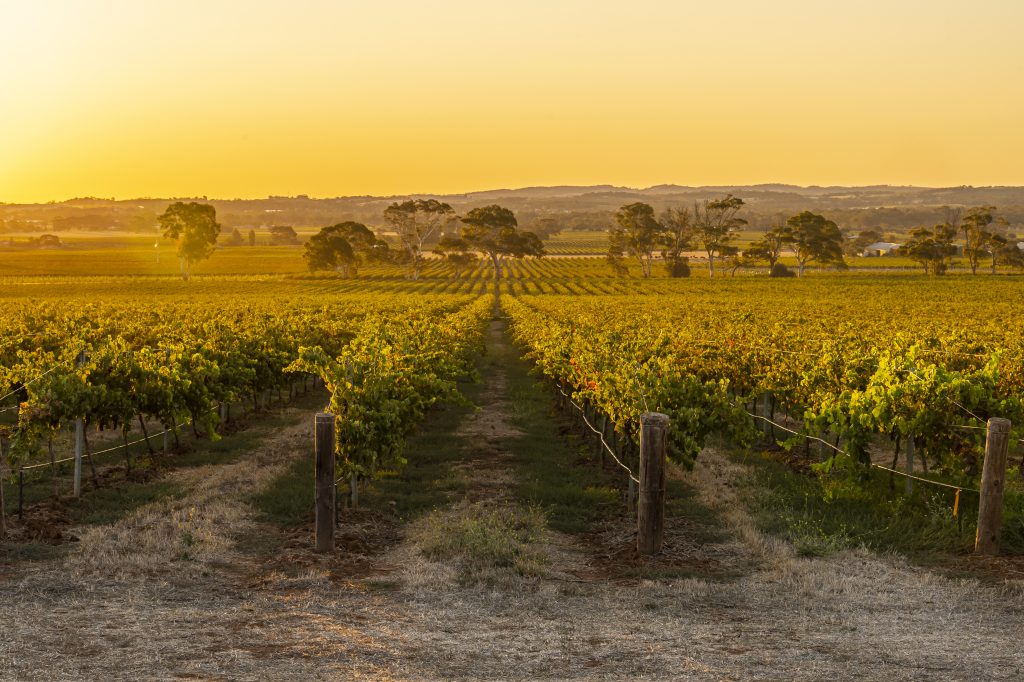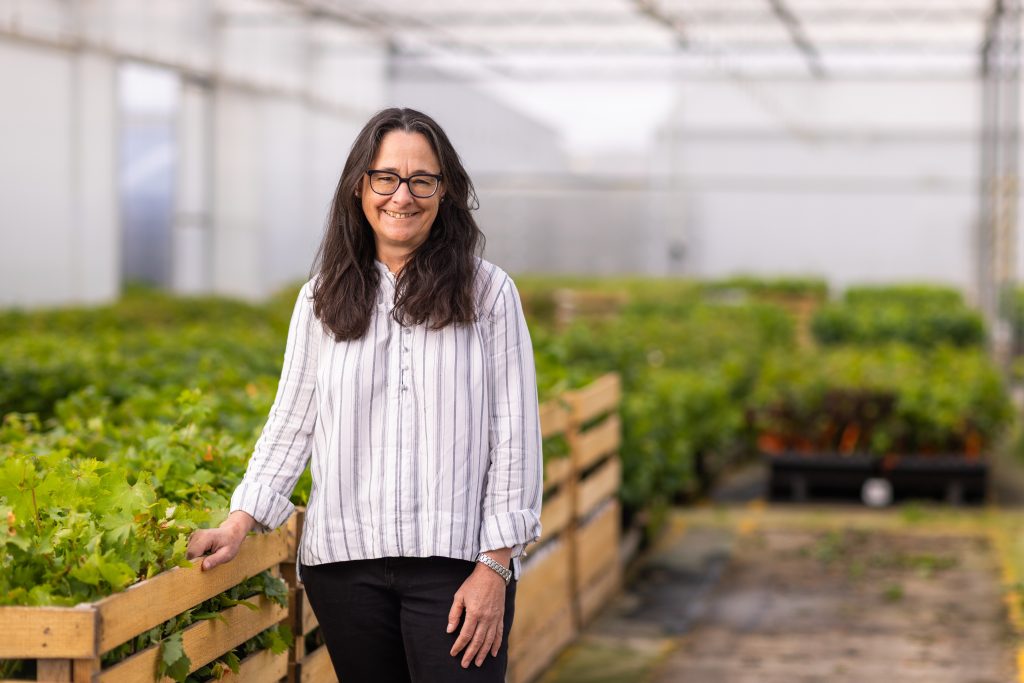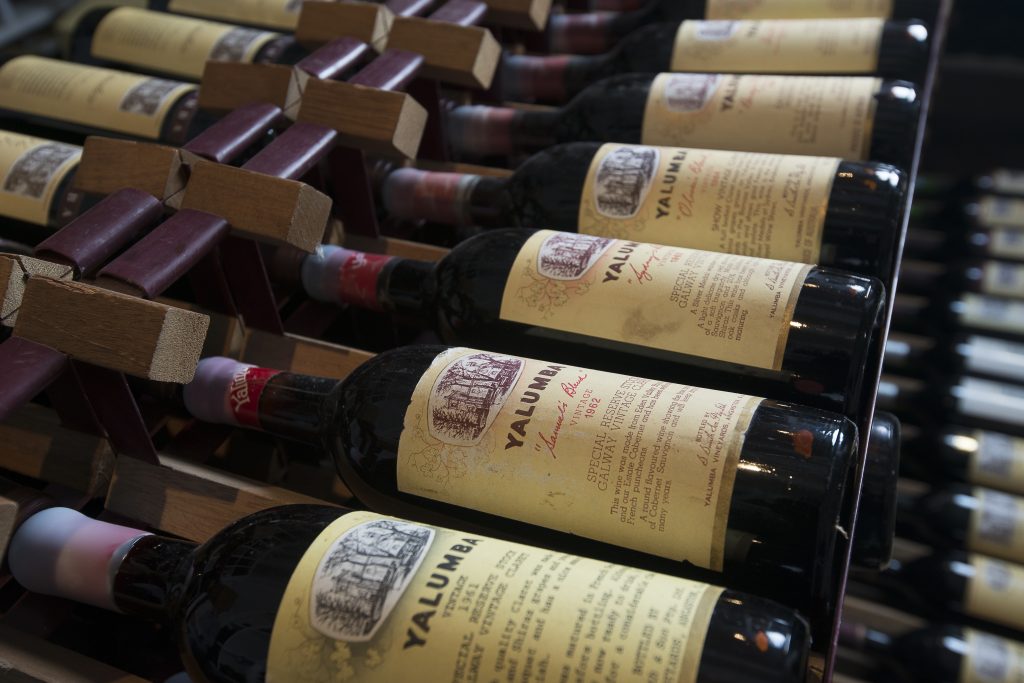This website uses cookies so that we can provide you with the best user experience possible. Cookie information is stored in your browser and performs functions such as recognising you when you return to our website and helping our team to understand which sections of the website you find most interesting and useful.
New world, old vines: Yalumba at 175
It claims to be Australia’s oldest family-owned winery but, as it celebrates another milestone, Yalumba brings a very modern understanding to its vinous heritage through wines including The Signature, The Octavius and The Caley. Richard Woodard reports.

The concept of old and new worlds in winemaking terms is a lazy construct at the best of times – all the more so when you’re discussing an Australian winery with 175 years of history behind it, and vineyards that are almost as old. For producers such as Yalumba, it’s not so much the idea of making wine that’s new – rather it’s the full appreciation of, and confidence in, that vinous heritage.
When did that begin to change? In 1994, when the European Union and Australia ratified their first agreement on trade in wine? “We really did grow up as a country then, we really did start to appreciate our own sense of place,” says Louisa Rose, Yalumba winemaker and head of sustainability, who has been with the business since 1992. “Before, the Australian wine industry was all about brands. We took for granted our regions and terroir – we didn’t recognise them as we do today.”
Or how about 2007, when Yalumba created its Old Vine Charter, a ladder of vine age classification that defines ‘old’ (35-plus years), ‘survivor’ (70+), ‘centenarian’ (100+) and ‘ancestor’ (125+) plants? “We were really only just starting to appreciate the resource of old-vine Shiraz we had,” says Rose. “And we had old-vine Grenache going into mainstream products.”
Those vines offer an unbroken connection to the past of which, thanks to phylloxera, most European winemakers can only dream: Yalumba uses parcels of Shiraz in the Barossa dating back to 1854, 1900, 1901, 1919… here, a ‘young’ vineyard was planted in 1945.
For many years, a large proportion of Yalumba’s production was fortified, but the company had been making dry red wine for decades before the first vintage of Barossa Cabernet/Shiraz blend The Signature in 1962. Well over a century ago, the globe-trotting Fred Caley Smith (grandson of Yalumba founder Samuel Smith) enjoyed a drop of Yalumba Claret 1894 in the foothills of the Himalayas.

The Signature has in many ways become Yalumba’s, well, signature over the years, with each vintage dedicated to an individual (signatory) who has made a great contribution to the business: Samuel Smith in 1962; in 1974, Christobel Hill Smith, widow of Sid Hill Smith, killed with fellow wine industry leaders Tom Hardy and Hugo Gramp in a 1938 air crash.
Taste the remarkably vivacious 1974 Signature today – some of it labelled prosaically as FDR1A (‘fine dry red’) – and the pedigree of those vineyards is apparent. “It was an atrocious vintage,” says Rose. “It was the first time they’d seen downy mildew in the Barossa, and the viticulturists had no idea of how to manage it.” The winery rescued some Cabernet and Shiraz “through a combination of good work and good luck” – and the resultant wine won a bagful of trophies even before it was bottled.
Rose ticks off some other Signature highlights: of 2004, with its “beautiful, slightly lofty Cabernet and sweet Shiraz”, she says: “Cabernet can sometimes be quite serious with its tannins, so it needs that lovely Shiraz that comes along and gives the Cab a big hug and tells it not to be too serious.”
Then there’s 2012: “One of the best vintages I’ve ever tasted. I thought that when it was young and I still think that about it today.” It’s also the year when the man who decides who will be named that year’s signatory – Yalumba MD Robert Hill-Smith – was himself given the honour. “It needed a family coup for this wine to be named Robert Hill-Smith,” says Rose. “It’s one of the very few times when you’ll see Robert Hill-Smith not in control and not knowing what was going on.”
And 2014: “One of those vintages where we had a bit of everything … Quite a lot of tertiary characters, but those flavours have been there since the wine was in barrel. It’s a vintage character that has aged very slowly, very gracefully. It’s one of those mysteries as to which part of the vintage really created that. I kind of like it when I don’t know the answer to the question.”
Finally, the latest Signature release – the 50th, no less – from 2021, honouring packaging and development manager Chris Gerhardy, a 51-year Yalumba veteran. “I think 2021 is a great vintage,” says Rose. “It might be as good as 2012 – but I’m going to give it a little bit longer before I make that call.”

But there’s more to Yalumba than The Signature. The Menzies Cabernet Sauvignon marks the historic role that Coonawarra has played in the company’s wines – Yalumba has been buying and swapping Coonawarra fruit since the 1920s, although it only acquired the Menzies vineyard in 1993.
Those ancient Barossa vines find their most eloquent expression in The Octavius, named after the 100-litre octave barrels created in the Yalumba cooperage by an act of serendipity involving some oak left over from repairing fortified wine puncheons. Here, the rich, warm Barossa character is balanced by the perfumed elegance and fine tannins of the higher-altitude Eden Valley.
The fragrant and juicy Yalumba Tri-Centenary Grenache is sourced from 800-odd Barossa bush vines planted in 1889 “at a time when nobody cared about people’s backs”, says Rose. “We do care about people’s backs now – we give them milk crates to sit on while they’re picking.” This is a Grenache that’s closer to Pinot Noir, she adds: “Proof that you can see through a red wine and it can be delicious.”
You can’t talk about Yalumba without mentioning Viognier, first planted here back in 1980, and the winery’s top expression, The Virgilius. “I’ve heard people say it’s a difficult variety for years,” says Rose with a puzzled tone. “I don’t think it’s difficult, it’s misunderstood. It doesn’t behave like any other white variety, it behaves more like a red wine.”
The trick with a white wine that’s more reliant on tannin structure than acidity, and that tends to get high in alcohol, she believes, is using the vineyard’s natural yeasts: “It really helps integrate all those ‘elbows’.”

The newest member of the Yalumba fine wine family is also the most expensive to date. “We got to the end of the 2012 vintage, with this amazing collection of components for Menzies, Octavian and Signature,” recalls Rose. “We sat there and we thought to ourselves: if we are going to go back and make a regional blend again, this is the year we’re going to do it.”
A combination of Coonawarra Cabernet and Barossa Shiraz was put into French oak for 20 months, bottled… and left. “Then we made it in ’13, ’14, ’15,” says Rose. “By 2017, we were ready to release, and that wine became The Caley.”
Since around 2014, The Caley has been roughly an 80/20 Cabernet/Shiraz blend. The Coonawarra component comes from a “really interesting” parcel of the Menzies vineyard, with more black clay and limestone, and less terra rossa, giving fragrance; the Barossa component includes an equally perfumed element from the Eden Valley. “So this is not just 80% Menzies and the rest Shiraz,” explains Rose. “It’s more than that.”
All of these wines are designed to evolve in bottle. Ask Rose for an optimal age for The Signatory and she’ll demur, saying that’s a subjective decision for the individual, before stating her personal preference for the 15- to 20-year mark.
In 2024, to mark Yalumba’s 175th birthday, the winery has released a tranche of back vintages named the Yalumba Museum Collection: eight wines, including The Caley, The Octavius, The Signature, The Menzies and The Reserve, spanning 2004 to 2014 and priced from A$85 to A$454 per bottle.
The wines are available exclusively through the Yalumba Wine Room and to Yalumba Wine Club members, and at fine wine bars and restaurants worldwide. Meanwhile, the Yalumba Wine Room is offering The Yalumba 175 Museum Collection Tasting of five Museum Collection wines, priced at A$175 a ticket.
Yalumba’s wines are represented in the UK by Fells: https://fells.co.uk/our-producers/yalumba/

